#luciel the great healer
Text
Okay I revoke previous statements because when did Luciel and Jord start having chemistry?
0 notes
Text
P-P-P-Power Rankings!!
Gamera: Rebirth (Last: NR): KIDS FIND THEMSELVES WATCHING MONSTER BIRDS INVADE SHINJUKU AND GET RESCUED BY A FIRE-BREATHING TURTLE.
Bungo Stray Dogs (Last: 1): Fukuchi and Fukuzawa had a messy breakup on the runway while Fyodor turned the tables on Dazai inside superjail.
Helck (Last: 2): Helck and Vermilio found a kingdom tortured by barbarains and were disgusted enough that they decided to help.
Jujutsu Kaisen (Last: 6): Mechamaru's well-laid battle plan wasn't enough to stop Mahito or prevent Geto from launching his Shibuya plan.
Mononogatari (Last: 4): The awakening did not go as planned, and the return of the Bridal Trousseau signaled a new phase in the battle.
Dark Gathering (Last: 3): After declaring war on Ai's god, everyone realized how nuts that was and Yayoi pounded out an updated plan.
Synduality: Noir (Last: 5): Kanata followed a lead on restoring Noir's lost memories but instead just got another piece to the puzzle.
The Great Cleric (Last: 8): Luciel starting build a rep as a reasonable healer before discovering the terrible secret of Substance X.
Aiming for eight each week cuz eighters gonna eight. [Full Watch List]
3 notes
·
View notes
Text
First Impression: The Great Cleric

Luciel was a salaryman in Japan who happened to be in the wrong place at the wrong time and got shot. He reincarnates in a fantasy world and decides to become a healer, believing the vocation will provide him with a stable living. At the city gate, he meets a lady knight named Lumina who provides some guidance, and soon he embarks on an intensive magic training regimen. With that completed, and having learned that healers don’t have the best of reputations, he sets out to look for work, and soon finds a chance to volunteer his services.
(Read More)
#Anime#First Impressions#The Great Cleric#Seija Musou: Salaryman Isekai de Ikinokoru Tame ni Ayumu Michi#Summer Anime 2023#Anime Article#Anime Blog#Articles#Christian Anime#Christian Otaku#Author: Jeskai Angel#Author: JeskaiAngel
2 notes
·
View notes
Text
The Great Cleric Vol. 1 Review

Welcome to my latest edition of ‘Reading Isekai Light Novels’ – today’s edition is for Seija Musou Salaryman Isekai de Ikinokoru Tame ni Aymu Michi, known in English as The Great Cleric. The Great Cleric is due to have an anime adaptation air this summer. I know, another isekai anime, woo…anyways, there’s no reason the judge a book based on its cover. I mean, The Great Cleric’s cover is pretty good by light novel standards, but illustrations rank pretty low when it comes to what makes a light novel good. ‘Isekai’, while often garbage, doesn’t have to be garbage. The same can be said for light novels in general.
The Great Cleric’s main character, whose name on Earth is unknown, is known as Luciel in Galdardia. He’s isekaied to Galdardia after being shot and killed in Japan. Imagine being killed by a firearm in Japan! Talk about horrible luck! Even worse, Luciel, a salaryman back on Earth, was just about to get promoted! His death is seen as so unfair, the powers that be reincarnate him in Galdardia, a magical world that resembles one from an RPG. Luciel is spawned in this new world with close to zero information about its society and how it functions.
Luciel, with decades of experience in real life in the business world, decides to become a healer, since his goal in this new world is to ‘die of old age’, and because being a healer sounds like a safe job. What Luciel didn’t account for is that the reputation of healers in Galdardia is at rock bottom. Healers in Galdardia are known for their sky-high rates, which many adventurers can’t afford. Those who can pay can. Those who can’t pay don’t get healed, or are sold into slavery as repayment. In short, the most prominent healers have decided to maximize their profit margin, charge extortionary rates, and use social control in order to maintain the status quo. Good thing that only happens in fantasy worlds…well and in America too.
Unknowingly, Luciel throws a wrench into the Healing Cartel by being isekaied. Along with joining the Healer’s Guild AND the Adventurer’s Guild, he decides to start training under the tutelage of Guildmaster Brod. Brod’s training makes boot camp look like recess, but Luciel is up to the task and ready to receive daily ass-kickings. He’s doing what it takes to not get killed in this world–something he couldn’t prevent in the other world. Also, it helps when you’re able to track your progress numerically (remember, this is an RPG world). Brod, seeing what potential Luciel has, gives him a residence at the Adventurer’s Guild. For only one silver, Luciel will heal your wounds–sure beats paying thirty gold for the same treatment. Luciel’s cheap healing and non-discriminatory practices make him a favorite within the guild’s quarters.
Unfortunately, the analysis of the internal healer-adventurer struggle is only at a surface level. I can’t deny, it’s certainly interesting–but it takes a backseat to the development of Luciel. I understand why, since Luciel is the main character and all, but I can’t help to find the guild dynamics to be more luring than reading about Luciel’s months-long grindfest.
If I had to pick one thing from The Great Cleric that turned me off the most, it would be how predictable most scenes went. Luciel spends most of this volume training under Brod, which doesn’t sound bad at first–but considering each day goes about the same, it does get tiring at a point. Each day Luciel:
Gets the shit kicked out of him by Brod
Drinks ‘Substance X’, which is a grotesque concoction that’s supposed to give you a skill buff
Has a conversation or two with the ‘beastwoman’ clerks and has the same thought every time (“oh nooooo people are staring daggers at me for talking to two beautiful women for what’s probably the 400th day in a row, hope I don’t get my ass kicked!”)
The first point actually isn’t bad, considering it’s the only action that really happens in this volume. Slapstick will never be boring to me. Repetitive, but not to a point where it gets grating.
‘Substance X’, an unknown drink made by ‘The Sage of Time’, is supposed to ‘help ya grow’. Well, thankfully it does! Having the ‘Access Mastory’ skill, Luciel can see that Substance X does actually give you buffs! The only downside is that the smell and taste of Substance X is putrid–and The Great Cleric makes sure you know that every time Luciel takes a swig of it. You’d think the surprise of Luciel being able to drink what apparently is too revolting for any other person would die down after the first year of him being there, but nope. Oh well. I’m being a bit nitpicky here, but I didn’t really care to read what’s pretty much the same conversation several times.
The last point is what drove me up the wall about The Great Cleric. Luciel, despite mentally being middle-aged, has the same temperament about talking to pretty women that timid teenage boys have. Perhaps he was one at some point, but he’s a grown-up now and should know better. This is a bit of conjecture since we don’t know how our MC talked to women back on Earth. For all we know, he could be a virgin that’s never had a girlfriend! Who has time for women when you’re a salaryman? Either way, the fear that Luciel has is largely unfound. Those who ‘discriminate’ against Luciel do due to the assumption that he’s the standard money-grubbing healer that discriminates against beastpeople, something completely understandable given the reputation healers have.
All together, Luciel has pretty much recreated his salaryman job in another world. Yes, healing those for cheap is way more virtuous than being a cog in a corporate machine, but ostensibly it’s the same structure. Considering Luciel’s goal in this new world is to die of old age, this isn’t a bad deal for him. Does sticking to this routine for months on end make for good entertainment? Well, it’s a mixed bag–altogether it makes it hard for me not to give The Great Cleric the moniker ‘The Mid Cleric’, but it would be dishonest to say that it’s bad.
The Great Cleric does have the potential to be one of the isekai series to stand out from the rest–you know, like Re;Zero and Konosuba. It’s hard to see since this volume was little more than an introduction to the series, but there are genuinely some interesting parts about this series that I hope the author expands on. I have a feeling it will, since by the end of this novel, Luciel’s existence is such a thorn in the side of other healers that some attempt to get him assassinated. Luciel is pretty much a walking Urgent Care–he’s apparently the only healer that sees healing as a virtue and not as a cushy job. Again, parallels could be drawn to the American healthcare system, but that’s a whole other conversation that’s way more complicated than the way healers screw over adventurers in Galdardia.
Most of the things I complained about above (the last two points in particular) should resolve themselves as the series progresses. This volume was Luciel’s grinding time–of course reading about someone grinding isn’t that fun. It’s rarely fun to grind in games! With a change in location, Luciel’s daily routine should be shaken-up. Well, I say should. There’s always a chance that Luciel finds another Brod to train under, continues his daily routine of gulping several cups of Substance X, and continues to be frightened when attractive women talk to him. Being a light novel, I wouldn’t be surprised!
The Great Cleric does have the potential to be a good series, but I personally would wait until the anime airs to consume it. I’ve been betrayed by light novels before, so there’s no telling if the quality of the series plummets after this volume or if it actually progresses in a fashion that is engrossing. The anime will clear that up for us. Personally, I’d like to see Galdardia’s society to be expanded on. We get a nibble of it in this volume, but with Luciel being cooped up in the Adventurer’s Guild for about 90% of this volume, we’ve only explored a tiny sliver of this magical world. As I said above, this should sort itself out as the story progresses, but I’d wait until it’s animated.
60/100
6 notes
·
View notes
Text
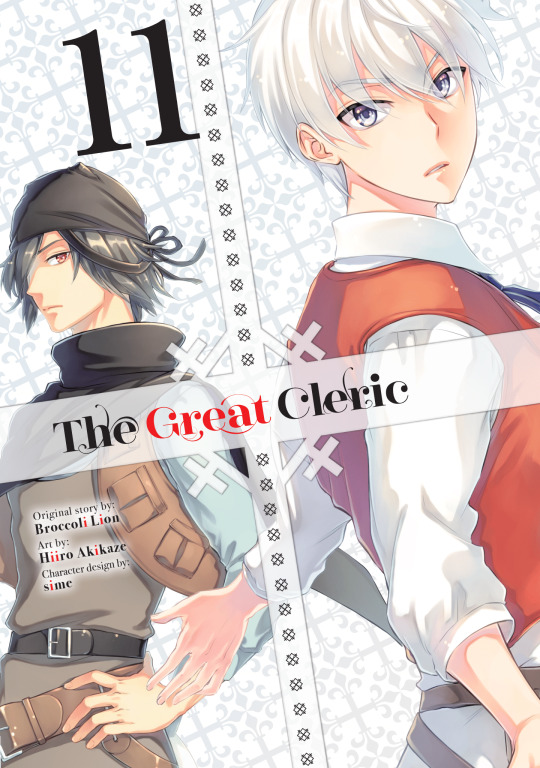
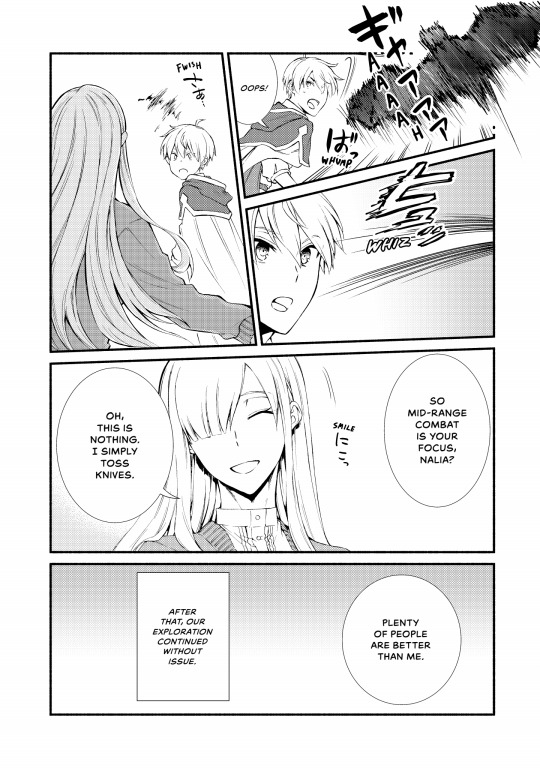
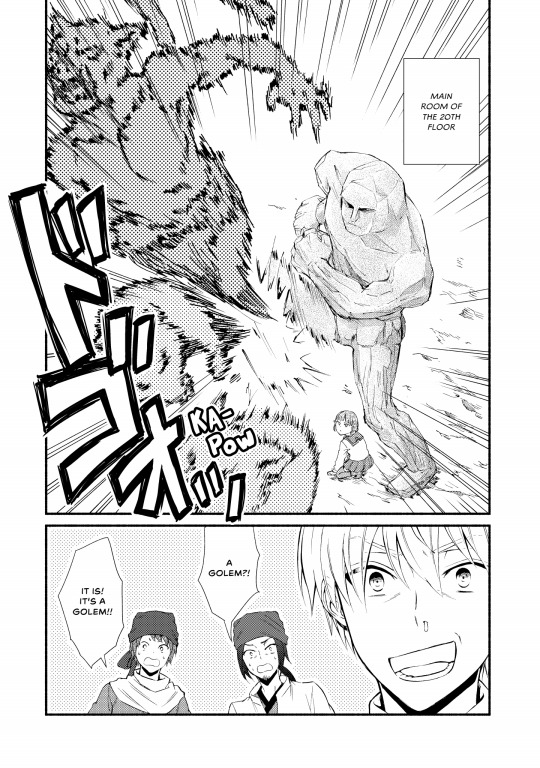
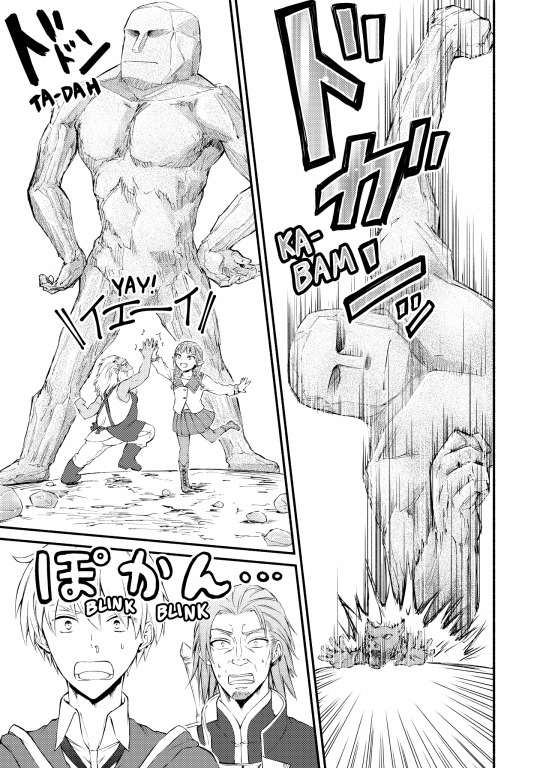
NEW Kodansha Digital:
✝️The Great Cleric, Volume 11✝️
By Broccoli Lion
⚔️In order to teach the beastfolk of Yenice more about healers, Luciel comes up with the idea of visiting their Adventurers’ Guild and demonstrating healing magic.
0 notes
Text
Brod is Luciels sugar daddy am no one can convince me otherwise
0 notes
Text
Brod is luciels sugar daddy and non of y’all can convince me otherwise
0 notes
Text
When a Great Cleric Becomes a Slaveholder

Anime and light novel protagonists who own slaves are a dime a dozen, and while these depictions of slavery can range from barely tolerable all the way to highly problematic, it’s pretty unusual for me to encounter an instance of slavery in fiction that reminds me of what the New Testament teaches on the subject. It is perhaps fitting that a light novel called The Great Cleric would be the story to achieve that feat.
In routine isekai fashion, a man dies and is reincarnated in a fantasy world. Adopting the name Luciel, he opts to become a healer. He thought it would be a stable job that would let him live a safe, peaceful life—the fantasy world equivalent of a white-collar job.
Yeah, Luciel’s life is not remotely as safe or easy as he had hoped. Between the rampant racism against beastfolk, corruption at the Healer’s Guild, hostility from adventurers toward healers, a fiendish drill instructor, a disgusting liquid known (within the setting!) as “Substance X,” getting kicked upstairs when he upsets the wrong people, an evil empire, corruption in the church, dragons, undead, etc., Luciel’s new life turns out to be a lot more exciting than he expected. He’s pretty unusual even by the fantasy world’s standards, which is part of why Luciel earns the epithet “Saint Weirdo” (and this only after he vigorously demands that people stop calling him “the Masochistic Zombie Healer”).
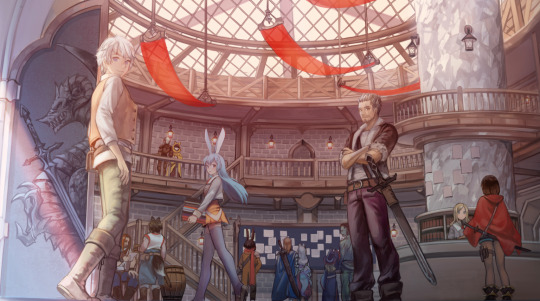
That brings us to the fourth volume of The Great Cleric, in which Luciel is dispatched to the beastfolk city state Yenice to reopen a long-defunct branch of the reformed Healer’s Guild. Upon finding himself quite understaffed, our ecclesiastical protagonist buys some “slaves.” Fast forward a bit, and certain corrupt parties within the city hire a group of thugs from the slums to attack Luciel. They fail, and Luciel temporarily throws them in the dungeon (randomly built under Healer’s Guildhall by his “slaves” acting on their own initiative).
Luciel leaves a catfolk slave named Ketty to guard the prisoners, and as soon as he’s out of earshot, the boss thug starts trying to convince Ketty to let him escape. He promises that in return he’ll find her a better position than working for a horrible healer (a logical offer, since, thanks to the aforementioned corruption, healers are widely reviled). But Ketty declines the offer. The following exchange is narrated from the gangster’s point of view.
“I don’t particularly dislike the way things are now,” [Ketty] replied.
“Do you hear yourself? You’re a slave!” This lady had to be out of her mind.
“Very observant. But I’m only a slave in name. I have freedom, I’m fed just as well as my master, allowed leisure time, and I’ve been given a room to sleep in. As far as slave life goes, things could be worse.”
“‘Things could be worse’?”
I didn’t know what else to say. Beastfolk slaves were fodder, tools to be used up and thrown away, and everyone knew it. They were lucky if they got fed scraps. Some only got water. But this one had a room and a bed. It was ridiculous. She was no slave. Not in the traditional sense, at least.
This concept—that Luciel treats his “slaves” in a way so radical that it’s essentially unrecognizable according to the conventional understanding of “slavery”—comes up again in vol. 5. Luciel is introducing the vespian (beefolk) prince Honeur to his retinue. When Luciel notes that they are technically his slaves, the vespian is taken aback.
“Slaves?” Honeur tilted his head. “Ah, my apologies. I was just surprised. I never would have guessed.”
In vol. 6, we again see someone flabbergasted by the disjuncture between how Luciel treats his “slaves” and how the concept of “slavery” is commonly understood. Newcomer Estia has a conversation with Ketty:
“Um, well, I heard you were Mister Luciel’s slave?”
“You heard right.”
“I also heard that, um, you’re a slave by choice.”
“You heard right. Save your breath, I know you’re about to ask me why. You’re going to assume I’ve been ordered to do something against my will, and then you’ll offer to help rescue me. Did I hit the mark?”
Estia blinked. “Um,” she stammered, “I…”
“I know you’ve been snooping around… To answer your question, I became Mister Luciel’s slave by pure coincidence. And frankly, I consider myself fortunate. I’m free, I can stay with my old master, we travel. As for why I prefer being a slave… Well, that’s because being an S-rank’s property has its perks, and he’s never once forced me to do
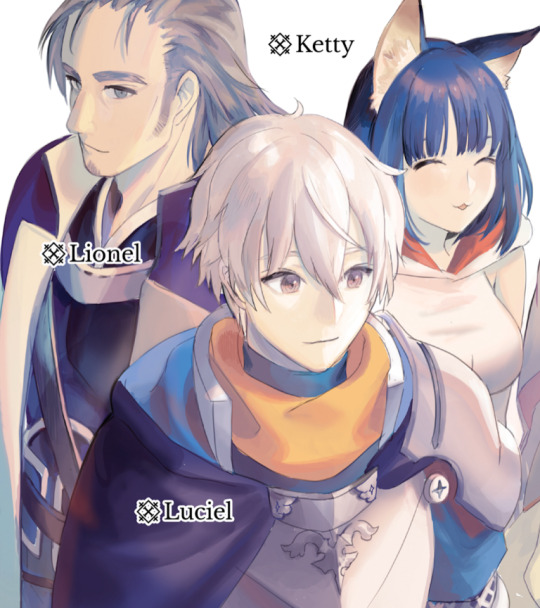
All of this brings to mind what the New Testament teaches about slaves and slavery. Historically, the fact that it doesn’t explicitly condemn slavery as an institution or call for its abolition has sometimes been used to defend slavery or to criticize Christianity. However, such an interpretation ignores the more subtle (well, marginally subtle) implications of New Testament teaching on the subject.
(“Subtle” probably deserves qualification, considering how 1 Tim. 1:8-11 condemns slave traders right along with: the lawless and disobedient, the ungodly and sinners, the unholy and profane, those who strike their fathers and mothers, murderers, the sexually immoral, men who practice homosexuality, liars, and perjurers. If the slave trade is so wicked as to be listed among such company, obviously no one ought to engage in it. And if no one is a slave trader, then slavery as an institution is on the way out.)
When the Lord teaches that we should love our neighbor as ourselves, what does that suggest about slavery? It takes some impressive mental gymnastics to explain how I can “love” someone while treating them like a piece of property. When Christ commands us to do unto others as we would have them do unto us, what does that suggest about slavery? It would be insane for anyone to argue that they want others to treat them as a piece of property, and if we don’t want it for ourselves, how can we then justify treating others that way? The Lord’s words may not explicitly condemn slavery, but at a minimum they certainly all for drastic, radical changes from how any human society ever has practiced slavery.
When the apostle Paul wrote “For in one Spirit we were all baptized into one body—Jews or Greeks, slaves or free—and all were made to drink of one Spirit,” and “Here there is not Greek and Jew, circumcised and uncircumcised, barbarian, Scythian, slave, free; but Christ is all, and in all,” he does not directly condemn slavery, it’s true. I know people have made dimwitted “they’re only equal in a spiritual sense” arguments, but it’s absurd to think that this equality in Christ has no implications for how we treat other people. Taken seriously, such passages pose a grave threat to any conventional notion of “slavery.”
Even the fact that the New Testament directly addresses slaves has abolitionist implications. When we read “Slaves, be obedient to those who are your masters according to the flesh, with fear and trembling, in the sincerity of your heart, as to Christ,” it can once again be twisted into a validation of slavery… Except for the curious fact that the inspired apostle IS SPEAKING TO SLAVES AT ALL. That’s not something one does with mere “property” that has no will of its own. The very act of enjoining slaves to be obedient is itself a challenge to chattel slavery.
There’s also my favorite example of this subtly subversive teaching in the New Testament: the apostle Paul’s letter to his friend Philemon. Paul emphasizes that he doesn’t want to coerce Philemon; he wants his friend to act of his own free will. And so he dances around the issue, getting as close possible to saying “You should effectively free Onesimus,” without actually saying “You should effectively free Onesimus.” He calls Onesimus his child and “my very heart,” making clear just how strongly he wants Onesimus to come back and work with him. But in what universe do masters say to their slaves “Feel free to leave and go work for some other guy if you want”?
Paul initially asks Philemon to treat his slave as a brother, and then as he would treat Paul himself! This is apostle Paul we’re talking about. He’s only one of the absolute most revered Christian figures short of the Lord himself, and he only wrote like half the New Testament. No Christian in their right mind would think it’s okay to treat Paul like their property. The epistle to Philemon may not be an abolitionist manifesto, but it calls for something so extreme that it’s unrecognizable as “slavery” in any sense in which human societies have ever practiced it.
To borrow a phrase from Abraham Lincoln, the New Testament put slavery “in the course of ultimate extinction.” Christian teaching made unconventional demands that simply aren’t compatible with anything people then or now normally understand by the term “slavery.” And this is why Luciel reminds me of what the scriptures say. He doesn’t just have happy “slaves” like those who appear in plenty of anime and light novels. Instead, Luciel treats them so well that other people within the setting acknowledge how unorthodox it is (to the point of questioning whether it’s really even slavery anymore). Like the New Testament, Luciel undermines the institution and redefines the word “slavery.”
Unlike Luciel (or Philemon!), we do not live in a society that permits slavery as an institution. However, the New Testament makes similarly radical demands in all our relationships, not just those between master and slave. Parents and children, brothers and sisters, husbands and wives, us and our enemies—the cross changes every kind of relationship in ways that the world, centuries ago and now, find radical. May we all treat our neighbor in ways that others find even more surprising than Luciel’s.
#Light Novels#Christianity#The Great Cleric#Seija Musou: Salaryman Isekai de Ikinokoru Tame ni Ayumu Michi#Slavery#Articles#Author: Jeskai Angel
3 notes
·
View notes
Text
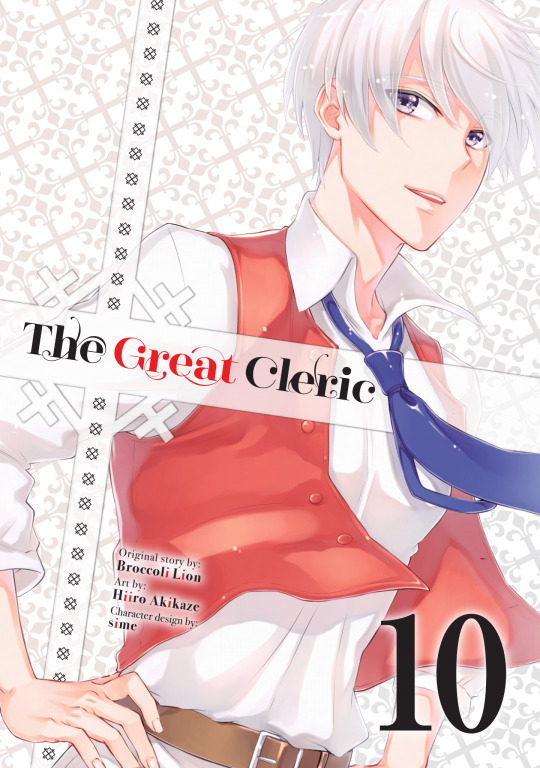
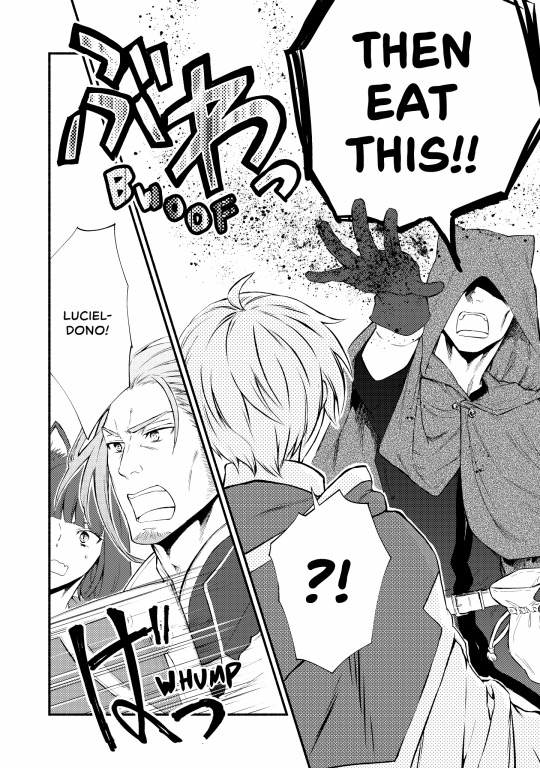
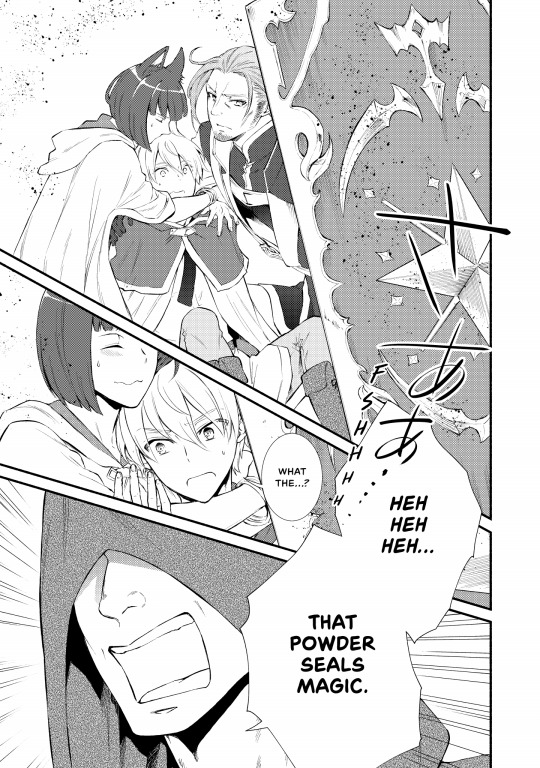
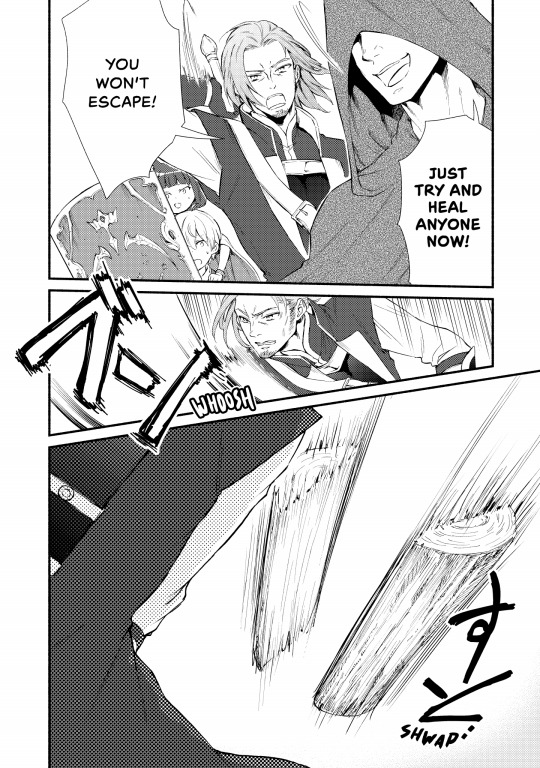
NEW Kodansha Digital:
🔮The Great Cleric, Volume 10🔮
By Hiiro Akikaze, sime and Broccoli Lion
⚕️To teach the beastfolk of Yenice more about healers, Luciel comes up with the idea of visiting their Adventurers’ Guild and demonstrating healing magic.
1 note
·
View note